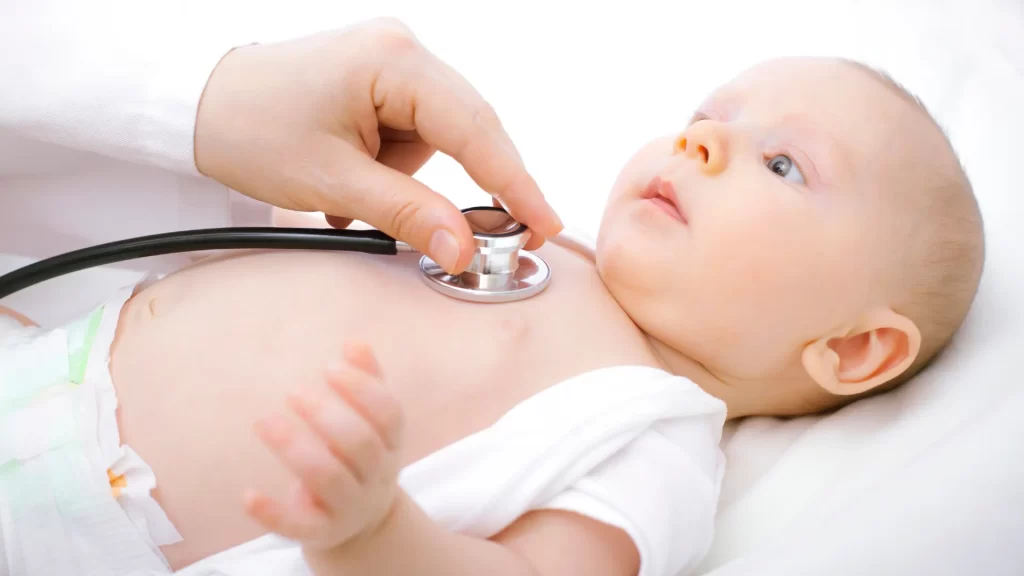
Welcoming a new baby into the world is both a joyous and overwhelming experience. As parents, ensuring the well-being and safety of your infant becomes a top priority. Creating a comprehensive baby care checklist is an effective way to manage the numerous tasks and responsibilities that come with caring for a newborn. This article will guide you through essential aspects of baby care, including crucial CPR skills, to help you feel prepared and confident.
Baby care encompasses various aspects, from feeding and diapering to sleep and health. A well-rounded baby care checklist should include items and knowledge to address these needs comprehensively. The foundation of good baby care is understanding the basics, which allows you to build upon your skills and knowledge as your baby grows.
Feeding is one of the most fundamental aspects of baby care. Whether you choose to breastfeed, bottle-feed, or use a combination of both, ensuring your baby receives adequate nutrition is crucial. Breastfeeding offers numerous benefits, including essential nutrients and antibodies that help protect your baby from infections. However, it can be challenging, especially for first-time mothers. Seeking support from lactation consultants can make the process smoother.
For those who opt for bottle-feeding, selecting the right formula is important. Consult with your pediatrician to choose a formula that suits your baby’s needs. Remember to follow safe preparation guidelines, including proper sterilization of bottles and nipples.
Keeping your baby clean and comfortable is another critical aspect of baby care. Diapering involves regular changes to prevent diaper rash and discomfort. Choose between disposable and cloth diapers based on your preference and convenience. Each has its advantages and requires specific care techniques.
Bathing your baby can be a delightful bonding experience. However, it’s essential to use gentle, baby-specific products to avoid skin irritation. Establishing a regular bath time routine can help soothe your baby and signal bedtime, promoting better sleep patterns.
Sleep is vital for your baby’s growth and development. Newborns typically sleep 16-17 hours a day, but their sleep patterns can be erratic. Creating a comfortable and safe sleep environment is crucial. Ensure your baby sleeps on their back in a crib free of toys, pillows, and loose bedding to reduce the risk of Sudden Infant Death Syndrome (SIDS).
Swaddling can provide comfort and help your baby sleep better. Learning the proper swaddling technique can make a significant difference in your baby’s sleep quality. Additionally, establishing a bedtime routine can signal to your baby that it’s time to sleep, making the transition to sleep easier.
Regular check-ups with your pediatrician are essential to monitor your baby’s health and development. These visits provide an opportunity to discuss any concerns and receive vaccinations that protect against various diseases. Staying up-to-date with your baby’s immunization schedule is crucial for their well-being.
Recognizing signs of illness early can make a significant difference in your baby’s health. Common symptoms like fever, diarrhea, or persistent crying should be addressed promptly. Understanding when to seek medical attention is an important part of baby care.
Knowing how to perform CPR on an infant is a critical skill that every parent should possess. Emergencies can occur without warning, and being prepared can save your baby’s life. Infant CPR differs from adult CPR in several ways, and it’s essential to understand these differences.
Ensuring your baby’s safety is paramount, and knowing essential CPR skills is a critical component. To gain the confidence and skills needed to handle emergencies, consider enrolling in an infant CPR class. At CPR Classes Near Me, we offer comprehensive CPR training tailored specifically for parents and caregivers. Our experienced instructors provide hands-on training to ensure you are prepared for any situation. Explore our training locations to find a class near you and take the first step in ensuring your baby’s safety.
Ensuring your home is a safe space for your baby is paramount. Baby-proofing involves several steps to minimize potential hazards. Start by securing furniture that could tip over, covering electrical outlets, and installing safety gates at stairways.
Keeping small objects out of reach can prevent choking incidents. As your baby starts to crawl and explore, maintaining a clean and organized environment becomes even more important. Regularly inspect toys for broken parts and ensure they are age-appropriate.
Supporting your baby’s emotional and social development is equally important. Engaging in activities that promote bonding, such as talking, singing, and reading to your baby, fosters a strong emotional connection. Physical touch, like cuddling and gentle massage, also plays a crucial role in emotional development.
Encouraging social interaction through playdates and baby groups can help your baby develop essential social skills. Exposure to different environments and people broadens their experiences and supports overall development.
As your baby grows, their needs will evolve. Staying informed and adaptable is key to meeting these changing requirements. Continue to educate yourself through books, articles, and classes on baby care and development.
Planning for the future also involves preparing for milestones like starting solid foods, teething, and eventually, toddlerhood. Each stage brings new challenges and joys, and being prepared helps you navigate these transitions smoothly.
Creating the ultimate baby care checklist involves understanding and addressing various aspects of your baby’s needs. From feeding and hygiene to sleep and safety, each element plays a vital role in your baby’s well-being. Including essential CPR skills in your checklist ensures you are prepared for emergencies, providing peace of mind and confidence in your ability to care for your baby.
By staying informed, seeking support, and prioritizing both your baby’s and your own well-being, you can create a nurturing environment that promotes healthy growth and development. Remember, every baby is unique, and being flexible and responsive to your baby’s needs is the cornerstone of effective baby care.